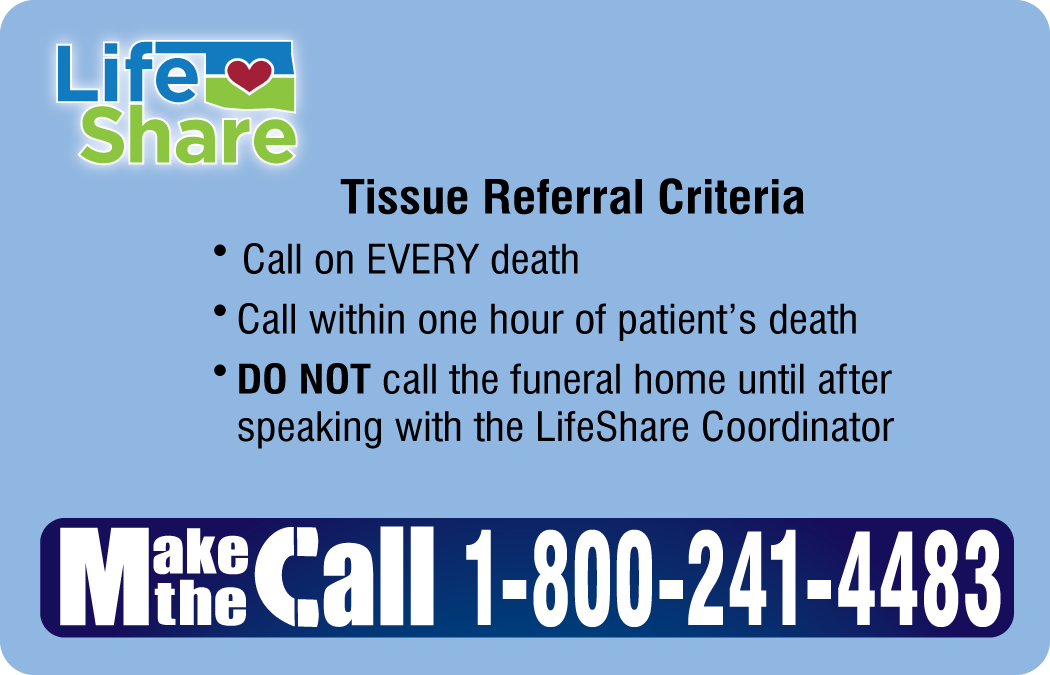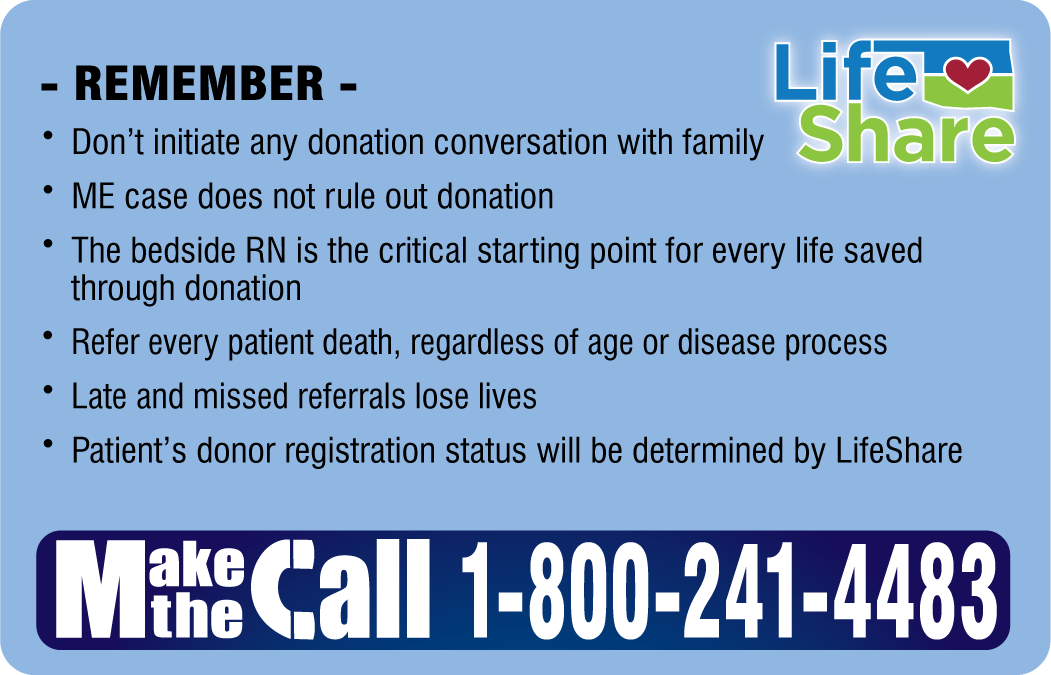TIMELY TISSUE REFERRAL CRITERIA* FOR TISSUE DONATION
MAKE THE CALL 1-800-241-4483
• Call on EVERY death
• Call within ONE HOUR of patient's death
• DO NOT call the funeral home until after speaking with LifeShare Coordinator
• DO NOT initiate any donation conversation with family
• ME case DOES NOT rule out donation
• The bedside RN is the critical starting point for every life saved through donation
• Refer every patient death, regardless of age or disease process
• Late and missed referrals lose lives
• Patient's donor registration status will be determined by LifeShare
*This criteria meets Center for Medicare & Medicaid Services regulations pertaining to organ and tissue donation.
• Call within ONE HOUR of patient's death
• DO NOT call the funeral home until after speaking with LifeShare Coordinator
• DO NOT initiate any donation conversation with family
• ME case DOES NOT rule out donation
• The bedside RN is the critical starting point for every life saved through donation
• Refer every patient death, regardless of age or disease process
• Late and missed referrals lose lives
• Patient's donor registration status will be determined by LifeShare
*This criteria meets Center for Medicare & Medicaid Services regulations pertaining to organ and tissue donation.
HOW THE TISSUE DONATION PROCESS WORKS
The needs and wishes of the patient’s family are always kept in focus by the medical team, by the LifeShare staff members and by social workers and clergy. The donation decision is made in the midst of enormous personal loss. Sensitivity, the willingness to listen and the ability to explain procedures in common terms can make organ donation an easier decision for families to make. It is a compassionate team effort.
|
Step One
An End-Of-Life Decision The medical team meets with the family to explain the nature of their loved one’s injury and prognosis. After exhausting all medical options, the medical team consults with the family regarding their wishes about end-of-life decisions, which may include the decision to withdraw life-sustaining therapies. A referral call is placed to LifeShare in order to obtain basic patient demographics and cause of death. |
|
Step Two
Authorization After the family has learned about their loved ones wishes or has agreed for them to be a donor, the next of kin completes the authorization form and answers a questionnaire of social and medical history of their loved one. The family is informed of the many factors that may impact the timing of the funeral, the timing of recovery procedure and/or autopsy that needs to be completed. |
|
Step Three
Funeral Home Notified The funeral home will be notified after authorization is obtained and funeral home information is provided by the family to the donation coordinator. Recovery timelines can vary depending on the number of organs and/or tissues are expected to be recovered. LifeShare will work with the funeral directors handling the funeral arrangement for the donor family as soon as details of the anticipated recovery are known. |








